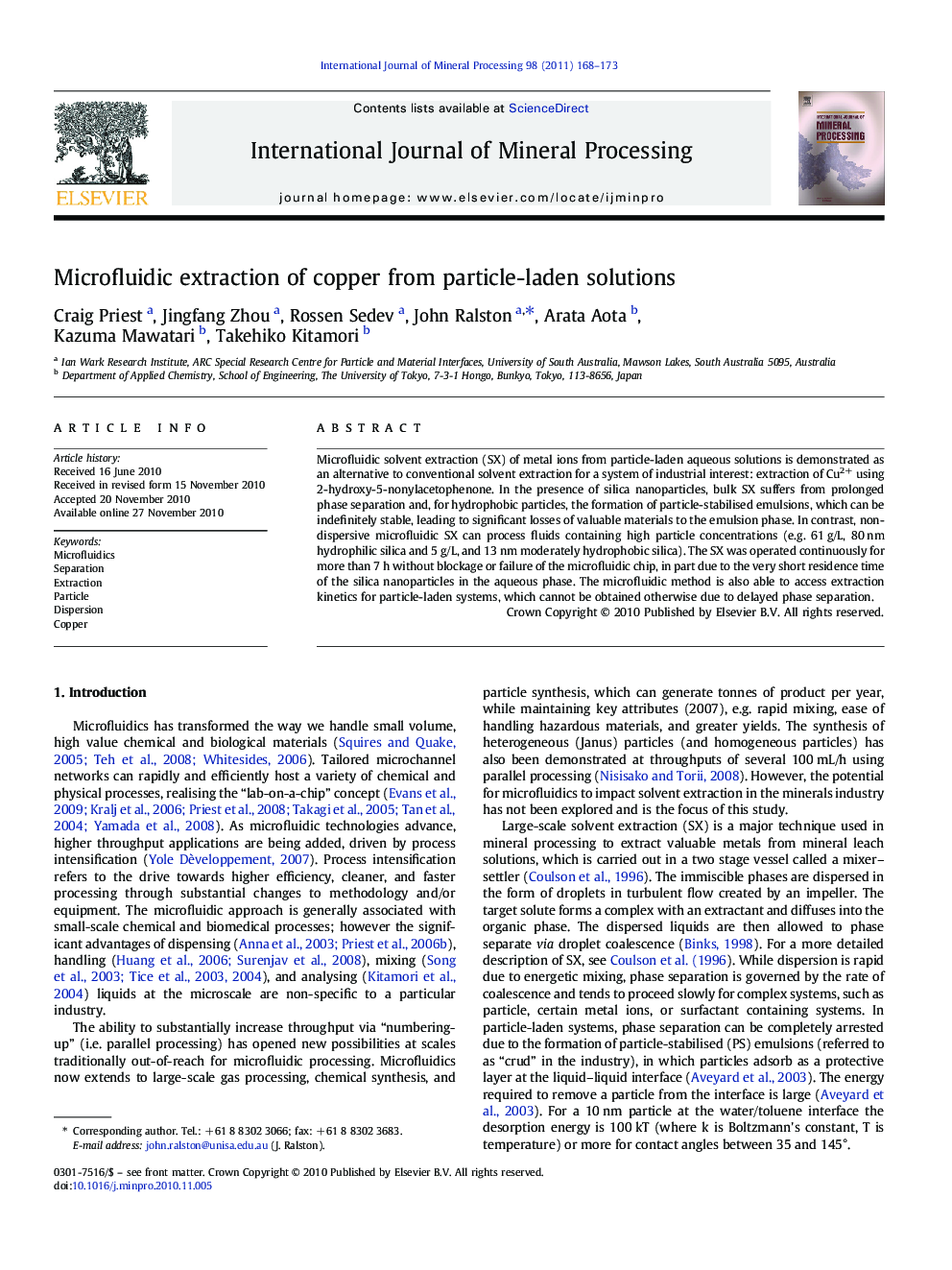| کد مقاله | کد نشریه | سال انتشار | مقاله انگلیسی | نسخه تمام متن |
|---|---|---|---|---|
| 214351 | 1425826 | 2011 | 6 صفحه PDF | دانلود رایگان |

Microfluidic solvent extraction (SX) of metal ions from particle-laden aqueous solutions is demonstrated as an alternative to conventional solvent extraction for a system of industrial interest: extraction of Cu2+ using 2-hydroxy-5-nonylacetophenone. In the presence of silica nanoparticles, bulk SX suffers from prolonged phase separation and, for hydrophobic particles, the formation of particle-stabilised emulsions, which can be indefinitely stable, leading to significant losses of valuable materials to the emulsion phase. In contrast, non-dispersive microfluidic SX can process fluids containing high particle concentrations (e.g. 61 g/L, 80 nm hydrophilic silica and 5 g/L, and 13 nm moderately hydrophobic silica). The SX was operated continuously for more than 7 h without blockage or failure of the microfluidic chip, in part due to the very short residence time of the silica nanoparticles in the aqueous phase. The microfluidic method is also able to access extraction kinetics for particle-laden systems, which cannot be obtained otherwise due to delayed phase separation.
Figure optionsDownload as PowerPoint slideResearch Highlights
► Solvent extraction (SX) of copper using microfluidic streams was studied
► Particle-laden aqueous phases were used as a non-ideal reference extraction
► Conventional (bulk) methods were hindered or arrested with particles present
► Phase separation times were effectively zero for microfluidic SX
► Extraction progress could be followed at short time-scales for microfluidic SX
Journal: International Journal of Mineral Processing - Volume 98, Issues 3–4, 9 March 2011, Pages 168–173